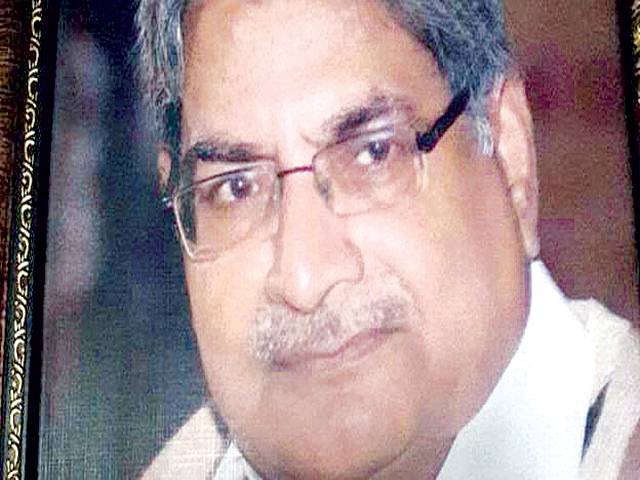NANKANA SAHIB - A prominent member of Ahmadi community and relative of Pakistan’s first Nobel Prize winner was gunned down on Thursday in an attack claimed by banned militant group Lashkar-e-Jhangvi.
Malik Saleem Latif, a cousin of Abdus Salam, who shared the physics prize in 1979, was shot just yards from his home in the town of Nankana Sahib, said Saleemuddin, a spokesman for the Ahmadi community.
Latif was riding his motorbike to work with his son when a gunman opened fire, said Saleemuddin, who goes by only one name. “Threats against Ahmadis are common in the area and Latif was a prominent member of the community and a well-known lawyer,” he added.
“He was going to the district courts with his son, also a lawyer, when an unidentified motorcyclist shot him,” police official Nazim Ali told AFP. “The bullet struck Lateef in his chest, killing him on the spot, while his son sustained minor injuries.”
Police said the attacker was wearing a security guard’s uniform and fled the scene. Lateef’s son Malik Awais told AFP he believed his father was killed for being an Ahmadi. The Ahmadi community has been a target of mob violence and attacks since the government legislated the sect as non-Muslim in 1974.
The al-Alami faction of the banned Lashkar-e-Jhangvi, which has ties to the Middle East-based Islamic State group, claimed responsibility in a statement sent to journalists. “Saleem Latif was spreading Ahmadi beliefs in the region,” the statement said. It was the latest in a series of sectarian incidents in Pakistan, where security forces have battled groups like Lashkar-e-Jhangvi for years.
“We have three teams investigating and searching for the assailants and trying to apprehend them,” district police officer Shahzada Billa Umer told Reuters.
Six Ahmadis were murdered because of their beliefs last year, according to an annual report published by the community and released Wednesday.
The latest killing came as Pakistan’s foreign ministry said a US State Department advisor on religious minorities had met with a government official, who told him the country had “rejected the politics of hate and divisiveness” and had an “unflinching” resolve to protect minorities.
Ahmadis are not allowed to call themselves Muslim or use Islamic symbols in their religious practices, a crime punishable under blasphemy laws.
The laws also make propagation of Ahmadi beliefs an offence, with 494 Ahmadis accused in 1,335 such cases over the past 30 years, rights body Amnesty International has said in a report.
Salam, who was Pakistan’s only Nobel laureate until Malala Yousufzai shared the peace prize in 2014, remains a contentious figure because of his religious background.
Prime Minister Nawaz Sharif’s government recently named a university physics department after Salam, drawing condemnation from the religious right, including the state-funded Council of Islamic Ideology.
In 2010, two simultaneous attacks on Ahmadi mosques in Lahore by the Pakistani Taliban killed 94 people. Three days later, militants stormed the hospital where survivors were taken, killing 12 people, mostly police and hospital staff.
Salam, who died in 1996, shared the Nobel Prize with Sheldon Glashow and Steven Weinberg for helping to pave the way to the discovery of the “God particle,” one of science’s greatest achievements in the last 100 years.






